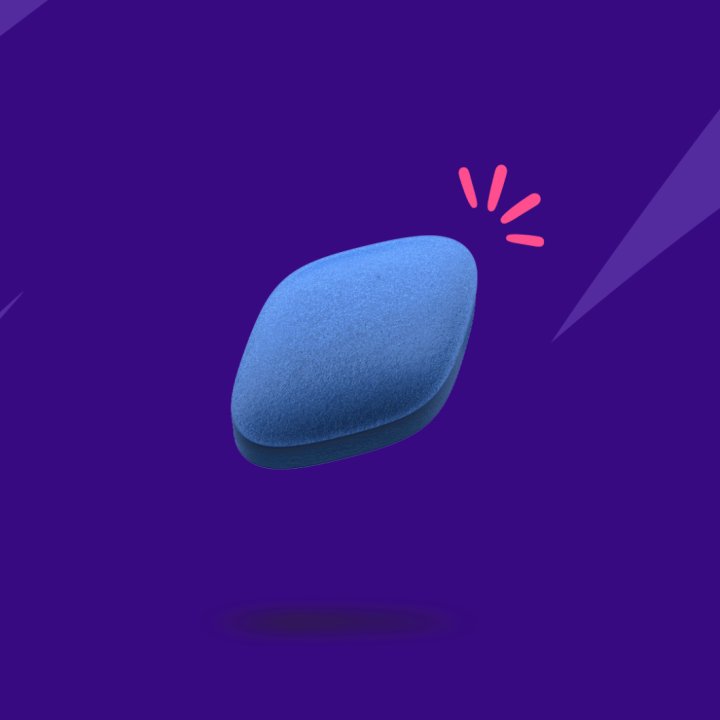
Male Low Testosterone (Testosterone Deficiency) in Bangladesh: Causes, Symptoms & Safe Treatments
Testosterone is the body’s primary androgen. “Low T” (hypogonadism) happens when the testes do not make enough testosterone or the brain signals that control production are impaired. Because testosterone touches energy, mood, sex drive, erections, muscle, fat distribution, bones, red blood cells, and fertility, deficiency can feel widespread. In Bangladesh, rising stress, poor sleep, weight gain, early-onset diabetes, and tobacco use (including zarda/gul) are common contributors. Early evaluation often reveals reversible causes.
What Is Low Testosterone?
Low testosterone (male hypogonadism) means circulating testosterone is persistently below healthy levels and symptoms are present. Doctors classify it by the level of the problem:
- Primary (testicular): the testes cannot produce enough testosterone.
- Secondary (brain/pituitary): the hypothalamus or pituitary does not send adequate signals (GnRH, LH/FSH) to the testes.
Both types can occur at any age and become more common with metabolic problems (obesity, insulin resistance) and sleep disorders. Identifying which type you have is crucial for safe, effective, and fertility-aware treatment.
How Testosterone Works
The hypothalamic–pituitary–testicular (HPT) axis controls testosterone:
- GnRH from the hypothalamus prompts the pituitary to release LH and FSH.
- LH signals Leydig cells in the testes to make testosterone.
- FSH supports Sertoli cells for sperm production (spermatogenesis).
This loop self-regulates: when testosterone rises, brain signals ease; when it falls, the brain pushes harder. Disruption anywhere—brain, pituitary, or testes—can lower testosterone. Sleep loss, obesity, alcohol, opioids/steroids, and chronic illness can also dampen this axis, which is why diagnosis looks beyond a single number.
What Counts as “Normal”?
Adult male total testosterone is often considered roughly 300–1,000 ng/dL, with highest values in the morning (test between 7–10 AM). Levels vary with age, sleep, illness, and obesity. Some men with “borderline” numbers feel well; others have clear symptoms near the low end of normal. Reputable guidance emphasizes:
- Symptoms + repeatedly low morning testosterone for diagnosis.
- Consider free testosterone when SHBG is abnormal (obesity, diabetes, thyroid disorders).
- Check LH/FSH to distinguish primary vs secondary hypogonadism.
One isolated lab is not enough. A competent clinician repeats testing and interprets results alongside history, sleep, medications, weight, and fertility goals.
Signs & Symptoms of Low Testosterone
Patterns differ. Some notice sexual changes first; others feel fatigue and mood dips long before ED.
- Low libido or reduced interest in intimacy
- Erectile difficulties; fewer morning/spontaneous erections
- Low energy, daytime fatigue, “need to nap” feeling
- Mood/cognition: depressed mood, irritability, brain fog, memory lapses
- Body composition: muscle loss/strength decline; central weight gain
- Bone health: gradual loss of bone density (fracture risk over time)
- Sleep problems; often linked to sleep apnea
- Blood/hair: anemia, thinning body or facial hair
- Reproductive: testicular shrinkage, fertility challenges; sometimes gynecomastia
Bangladesh pattern we often see: low stamina, less intimacy interest, belly fat, and poor sleep—followed by ED. Because ED has many causes (vascular, neurologic, psychological, medication-related), avoid self-diagnosis and seek proper evaluation.
Causes of Low Testosterone
Primary (Testicular) Causes
- Genetic: Klinefelter syndrome; other developmental issues (e.g., undescended testes)
- Injury/surgery: trauma, torsion, radiation/chemotherapy
- Infections: mumps orchitis
- Age-related decline compounded by diabetes, vascular disease
Secondary (Brain/Pituitary) Causes
- Pituitary/hypothalamic disorders or tumors; elevated prolactin
- Obesity, metabolic syndrome, type 2 diabetes, insulin resistance
- Obstructive sleep apnea, chronic stress, depression
- Medications: chronic opioids, certain steroids, some psych meds
- Alcohol excess; recreational drugs
- Anabolic steroid (AAS) use/suppression (post-cycle crash)
- Chronic illness (renal/hepatic disease), iron overload states
These factors often overlap. For example, abdominal obesity plus sleep apnea can suppress LH/FSH signaling and lower both total and free testosterone—often reversible with weight loss and sleep therapy.
Bangladesh-Specific Risk Factors
- Early diabetes & prediabetes, hypertension, high triglycerides
- Abdominal obesity from refined carbs, fried snacks, sugary beverages
- Sleep deprivation (late-night work/study, smartphones), sleep apnea risk
- Tobacco in all forms (smoking, zarda/gul, bidi)
- Psychosocial stress (long Dhaka commutes, financial pressure, shift work)
- Sedentary routines with minimal resistance training
- Self-medication with hormones or “gym boosters” (unregulated AAS blends)
Addressing these realities—not just prescribing hormones—produces better outcomes and fewer side effects.
How Doctors Diagnose Low Testosterone
1) History & Physical Exam
Discuss symptoms (libido, ED, energy, sleep), mental health, fertility plans, medications/supplements (including AAS), comorbidities (diabetes, thyroid), family history.
2) Morning Blood Tests (repeat to confirm)
- Total testosterone (7–10 AM) on two separate mornings
- Free testosterone when SHBG is abnormal (obesity, diabetes, thyroid disease)
- LH/FSH to separate primary vs secondary hypogonadism
- Prolactin, TSH/FT4, HbA1c, lipid panel, CBC, ± vitamin D, LFTs
Interpreting these together guides safe treatment and monitoring.
3) Targeted Tests When Indicated
- Pituitary MRI if secondary hypogonadism or high prolactin is suspected
- Sleep study for suspected obstructive sleep apnea
- Iron studies for iron overload states
Key principle: Low T plus relevant symptoms is what matters clinically. A borderline lab without symptoms rarely equals true deficiency, and overtreatment can cause harm.
When to Seek Medical Advice
- Persistent low libido, fatigue, or erectile issues with weight gain or poor sleep
- Fertility concerns now or in the near future
- History of steroid use with a “crash” in mood, energy, or libido
- Frequent fractures, loss of height, or other bone-loss signs
- Diabetes or metabolic syndrome with fewer morning erections and falling stamina
Confidential telemedicine or in-person visits with a urologist or endocrinologist are good first steps. Expect a plan for morning labs and follow-up.
Treatment Options for Low Testosterone
Start by fixing the root causes—these changes often raise testosterone and may reduce or delay the need for hormones:
- Lose 5–10% body weight if overweight
- Control diabetes, blood pressure, lipids; treat sleep apnea
- Reduce alcohol; stop tobacco (including smokeless)
- Address depression/anxiety; set a consistent sleep schedule
For persistent, confirmed deficiency with symptoms, doctors may consider medicine-based options below.
Testosterone Replacement Therapy (TRT)
What it is: Doctor-prescribed testosterone (gel/cream, injections, patches, pellets, or approved oral forms) to restore levels when true deficiency is confirmed.
Potential benefits (when indicated): Better libido, energy, mood, muscle mass/strength, bone density; some men notice improved erectile response (often alongside PDE5 inhibitors for ED).
Risks & monitoring:
- Acne/oily skin, fluid retention, possible worsening sleep apnea
- Hematocrit increase (thicker blood) → needs monitoring
- Fertility suppression (TRT can reduce or halt sperm production)
- Possible gynecomastia
- Monitoring typically includes TT/free T, hematocrit/CBC, lipids, and PSA (per age/clinical context)
Who should be cautious/avoid: Men planning conception soon; individuals with certain cancers or uncontrolled severe conditions. Decisions are individualized with a qualified clinician.
Fertility-Friendly Alternatives
When preserving or restoring fertility is a priority (and the testes can respond), clinicians may use:
- Clomiphene / Enclomiphene to stimulate your own LH/FSH
- hCG ± aromatase inhibitors to support testosterone and spermatogenesis
These require medical supervision and lab monitoring; they are not effective in severe primary testicular failure.
Erectile Dysfunction Support
PDE5 inhibitors (e.g., sildenafil, tadalafil) improve penile blood flow while low T is being addressed. They are not a substitute for treating true testosterone deficiency and must be prescribed with care—especially if you have heart disease or take nitrates.
Important safety note: Avoid “boosters” and unregulated gym products—they can suppress natural testosterone, harm the liver, alter lipids, and impair fertility. Discuss any supplement or medication with a licensed clinician.
Lifestyle That Supports Healthy Testosterone
Nutrition That Works in Real Life
- Base meals on protein + fiber + healthy fats: eggs, fish (ilish/ruhi), chicken, daal, nuts, seeds, vegetables, olive/mustard oil
- Cut back on refined carbs, deep-fried snacks, and sugary drinks
- Consider vitamin D, zinc, magnesium if intake is low—discuss safe sources with your doctor
Train Like It Matters
- Resistance training 2–3×/week (compound lifts, bodyweight/calisthenics)
- Daily movement: walking/cycling; break up desk time
- Short HIIT sessions if time-pressed—build gradually
Sleep Is a Hormone Lever
- Aim for 7–8 hours nightly with consistent schedule
- Reduce late-night screens; keep the room cool and dark
- Screen for sleep apnea if loud snoring or unrefreshing sleep
Stress & Substances
- Use faith practices, breathing exercises, mindfulness, or counseling
- Quit smoking & smokeless tobacco; keep alcohol moderate
- Avoid recreational drugs and steroid cycles
Prevention: Practical Steps That Work in Bangladesh
Maintain a Healthy Waistline
- Aim for 0.25–0.5 kg weekly fat loss with balanced eating and activity
- Protein (eggs, ilish/ruhi, chicken, daal), fiber (vegetables, whole grains), healthy fats (mustard/olive oil, nuts)
- Limit refined rice portions, deep-fried street foods, sugary drinks
Sleep Like It Matters
- Target 7–8 hours nightly; fixed bedtime and wake time
- Cool, dark room; reduce screens 1 hour before bed
- If snoring or daytime sleepiness, ask about a sleep study
Train Your Body to Send the Right Signals
- Resistance training 2–3 days per week
- Brisk walking or cycling most days; break up prolonged sitting
- Start small and progress steadily to avoid injury
Quit Tobacco & Moderate Alcohol
- Stopping smoking and smokeless tobacco improves vascular health and hormonal signaling
- Keep alcohol moderate; heavy drinking depresses hormone production and sleep quality
Review Medicines & Supplements
- Discuss chronic opioids, certain steroids, and other drugs that may suppress hormones
- Avoid steroid cycles and unverified “testosterone boosters”
- Ask about vitamin D, zinc, or magnesium if diet is limited
Keep Up with Health Checks
- Periodic screening for blood pressure, glucose/HbA1c, and lipids
- If you have risk factors (obesity, snoring, daytime sleepiness), consider a sleep study
Early action protects hormonal, metabolic, and sexual health.
Male Low Testosterone in Bangladesh: Frequently Asked Questions
Clear answers to common questions about low testosterone (low T) in Bangladesh—symptoms, causes, diagnosis, and safe treatment choices.




